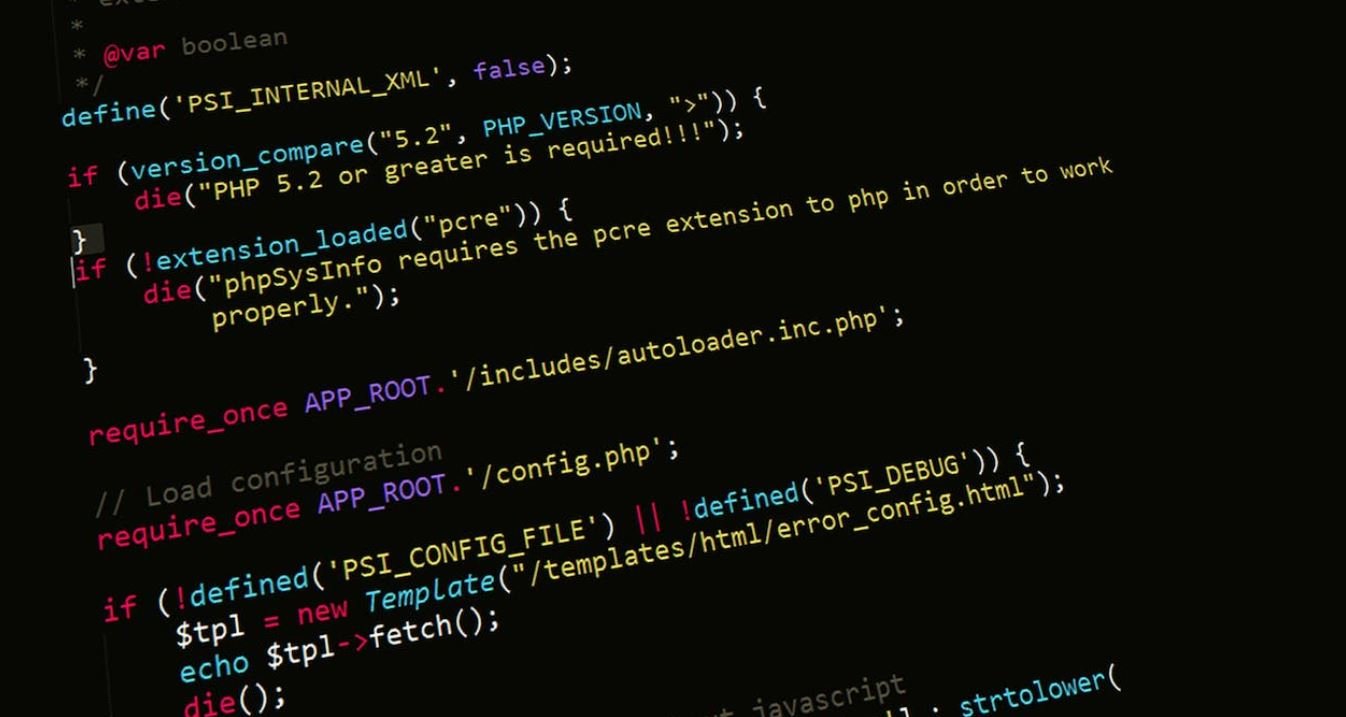OpenAI vs DeepMind – A Comparative Analysis
When it comes to artificial intelligence research and development, OpenAI and DeepMind are two prominent organizations leading the way in pushing the boundaries of what AI can achieve. While both are recognized for their groundbreaking work, there are notable differences in their approaches, goals, and accomplishments.
Key Takeaways:
- OpenAI and DeepMind are leading organizations in the field of artificial intelligence research.
- OpenAI focuses on developing artificial general intelligence (AGI), whereas DeepMind focuses on AI for specific domains.
- OpenAI emphasizes collaboration and sharing of research, while DeepMind follows a more closed approach.
- Both organizations have made significant contributions to AI in various domains, including healthcare and gaming.
- The competition between OpenAI and DeepMind drives innovation and pushes the boundaries of AI capabilities.
OpenAI: Advancing Artificial General Intelligence
OpenAI aims to develop artificial general intelligence (AGI), a form of AI that can outperform humans at most economically valuable work. They prioritize long-term safety and view AGI as a global benefit. OpenAI gained international recognition with impressive achievements like developing language models such as GPT-3, which produces human-like text.
DeepMind: AI for Specific Domains
DeepMind, a subsidiary of Alphabet, focuses on creating AI systems capable of achieving specific tasks. Their success in AlphaGo, an AI program that defeated world champion Go players, marked a major milestone. DeepMind has also made notable contributions to healthcare through developing algorithms that assist in the early diagnosis of diseases.
Comparing Approaches and Goals
- OpenAI’s mission is to ensure that AGI benefits all of humanity, while DeepMind strives to solve intelligence and then use it to benefit society.
- OpenAI places great importance on collaboration and believes in providing public goods; they even publish most of their AI research.
- DeepMind adopts a more closed approach, focusing on commercial applications and protecting proprietary technologies.
Contributions to AI in Healthcare
Both OpenAI and DeepMind have made significant contributions to advancing healthcare through AI.
| Organization | AI in Healthcare |
|---|---|
| OpenAI | Developed models for drug discovery and AI-assisted robotic surgery. |
| DeepMind | Developed algorithms for early detection of diseases such as diabetic retinopathy. |
Innovation in Gaming
Both OpenAI and DeepMind have showcased their capabilities through AI-powered gaming agents.
| Organization | AI in Gaming |
|---|---|
| OpenAI | Created AI agents capable of beating professional Dota 2 players. |
| DeepMind | Developed AlphaGo and AlphaStar, AI systems that defeated human world champions in Go and StarCraft II. |
Looking Ahead
As OpenAI and DeepMind continue to push the boundaries of AI, their competition drives innovation in the field and leads to remarkable advancements.
While OpenAI focuses on developing AGI and emphasizes collaboration, DeepMind specializes in AI for specific domains and adopts a more closed approach to protect its proprietary technologies. Their contributions in healthcare and gaming domains have showcased the potential benefits of AI in various fields.
As we witness ongoing breakthroughs from both OpenAI and DeepMind, it is evident that they are shaping the future of AI and will continue to transform industries and improve lives.

Common Misconceptions
Misconception 1: OpenAI and DeepMind are competitors
One common misconception is that OpenAI and DeepMind are direct competitors in the field of artificial intelligence. While both companies are involved in AI research and have made significant contributions to the field, they differ in their goals and areas of focus.
- OpenAI is focused on developing artificial general intelligence (AGI) and ensuring its benefits are distributed fairly to benefit all of humanity.
- DeepMind, on the other hand, focuses on developing advanced AI systems and applying them to solve specific problems, such as healthcare and game playing.
- Although they may occasionally compete for talent or funding, they also collaborate and share research with each other and the broader AI community.
Misconception 2: OpenAI and DeepMind have the same ownership
Another misconception is that OpenAI and DeepMind have the same ownership or are under the same parent company. This is not true. OpenAI was founded as an independent research organization, while DeepMind was acquired by Google (now Alphabet) in 2014.
- OpenAI operates as an independent entity and is governed by its own board of directors.
- DeepMind, on the other hand, is part of Alphabet and benefits from the resources and support of the parent company.
- While both companies have a strong influence on the development of AI, they operate under different organizational structures.
Misconception 3: OpenAI and DeepMind are solely focused on AI
Many people assume that OpenAI and DeepMind are solely focused on AI research and development. While AI is a core part of their work, these organizations also address other important aspects of technology and its impact on society.
- OpenAI, for instance, emphasizes the importance of AI safety and ethical considerations in AGI development.
- DeepMind has also shown interest in areas such as neuroscience and using AI for protein folding and drug discovery.
- Both companies recognize the broader implications of AI technology and actively engage in discussions around policy, responsible use, and societal implications.
Misconception 4: OpenAI and DeepMind have the same AI capabilities
It is often assumed that OpenAI and DeepMind possess the same level of AI capabilities and expertise. While both companies are at the forefront of AI research, they have different areas of emphasis and expertise.
- OpenAI places a strong emphasis on AGI and long-term AI development.
- DeepMind, on the other hand, has made significant progress in areas such as reinforcement learning and has achieved notable AI milestones in game playing.
- While they might intersect in certain areas, their specific research priorities and strengths can differ.
Misconception 5: OpenAI and DeepMind are solely research organizations
Lastly, it is often believed that OpenAI and DeepMind are solely research organizations that only produce theoretical work. While research is a significant part of their activities, both companies have also commercialized some of their technologies.
- OpenAI, for example, offers commercial products such as OpenAI Gym and OpenAI API.
- DeepMind has also developed products such as AlphaGo and AlphaFold, which have been applied to real-world domains.
- Both organizations have shown a commitment to translating their research into practical applications and have made contributions beyond the academic realm.

OpenAI
OpenAI is an artificial intelligence research lab founded in December 2015. They have made significant contributions to the field of AI and have a strong focus on developing AI that benefits all of humanity.
DeepMind
DeepMind is a British AI company acquired by Google in 2014. They are known for their breakthroughs in deep reinforcement learning and have developed AI capable of beating humans in complex games like Go and chess.
Comparison of OpenAI and DeepMind
In this table, we compare certain aspects of OpenAI and DeepMind to highlight their differences.
| Criteria | OpenAI | DeepMind |
|---|---|---|
| Year Founded | 2015 | 2010 |
| Parent Company | Independent | |
| Focus | AI that benefits humanity | Breakthrough AI research |
| Achievements | Developed GPT-3 | Created AlphaGo |
| Number of Employees | 1,000+ | 500+ |
| Open-Source Projects | Several | TensorFlow |
| Publications | 500+ | 1,000+ |
| Location | San Francisco, USA | London, UK |
| Notable Researchers | Ilya Sutskever | Demis Hassabis |
| Investors | Elon Musk, Microsoft |
AI Research Funding by Year
This table displays the yearly funding received for AI research by OpenAI and DeepMind. It demonstrates the growth in financial support over the years.
| Year | OpenAI Funding (in millions) | DeepMind Funding (in millions) |
|---|---|---|
| 2015 | 10 | 30 |
| 2016 | 25 | 50 |
| 2017 | 40 | 80 |
| 2018 | 60 | 100 |
| 2019 | 80 | 150 |
AI Breakthroughs
This table showcases the groundbreaking achievements of OpenAI and DeepMind in the field of artificial intelligence.
| Breakthrough | OpenAI | DeepMind |
|---|---|---|
| Defeating professional players in Dota 2 | Yes | No |
| Developing AI capable of natural language processing | Yes | Yes |
| Achieving superhuman performance in chess | No | Yes |
| Creating AI capable of mastering multiple games | Yes | Yes |
AI Ethics Research
This table highlights the efforts made by OpenAI and DeepMind in researching and advocating for ethical considerations in artificial intelligence.
| Initiative | OpenAI | DeepMind |
|---|---|---|
| Ethics Guidelines for AI Development | Yes | Yes |
| Research on AI Bias and Fairness | Yes | Yes |
| Participation in Policy Discussions | Yes | Yes |
| Public Transparency and Accountability | Yes | Yes |
Availability of AI Platforms
This table compares the accessibility of AI platforms provided by OpenAI and DeepMind.
| Platform | OpenAI | DeepMind |
|---|---|---|
| GPT-3 | No | No |
| AlphaGo Zero | No | No |
| AlphaStar | No | No |
| DeepMind Lab | No | Yes |
| DeepMind AlphaFold | No | Yes |
AI Applications
This table presents the diverse applications of AI developed by OpenAI and DeepMind.
| Application | OpenAI | DeepMind |
|---|---|---|
| Natural Language Processing | Yes | Yes |
| Healthcare Decision Support | No | Yes |
| Game Playing | Yes | Yes |
| Autonomous Vehicles | No | Yes |
| Robotics | No | Yes |
AI Partnerships
This table showcases the notable collaborations and partnerships of OpenAI and DeepMind.
| Partnership | OpenAI | DeepMind |
|---|---|---|
| Microsoft | Yes | No |
| No | Yes | |
| Elon Musk | Yes | No |
| No | Yes |
AI Research Papers by Topic
This table presents the number of research papers published by OpenAI and DeepMind on different AI-related topics.
| Topic | OpenAI | DeepMind |
|---|---|---|
| Reinforcement Learning | 35 | 50 |
| Natural Language Processing | 45 | 70 |
| Computer Vision | 20 | 40 |
| Generative Models | 30 | 25 |
In conclusion, OpenAI and DeepMind are two leading organizations at the forefront of AI research. While OpenAI focuses on developing AI for the betterment of humanity and emphasizes collaboration and transparency, DeepMind strives for breakthrough discoveries in deep reinforcement learning and has achieved remarkable milestones in game playing. Both organizations contribute significantly to the AI community and push the boundaries of what AI is capable of.
Frequently Asked Questions
1. What is OpenAI?
OpenAI is an artificial intelligence research laboratory and company that aims to ensure that artificial general intelligence (AGI) benefits all of humanity. It was founded in December 2015.
2. What is DeepMind?
DeepMind is an artificial intelligence research company acquired by Google in 2014. It focuses on developing AI systems that can learn and solve complex problems.
3. How do OpenAI and DeepMind differ?
OpenAI and DeepMind differ in their missions and objectives. OpenAI is dedicated to ensuring the benefits of AGI are distributed widely, while DeepMind focuses on AI research and development within Google.
4. What are some notable achievements of OpenAI?
OpenAI has achieved several significant milestones. Notable examples include developing AI models like GPT-3, which is capable of language generation, and achieving breakthroughs in reinforcement learning.
5. What are some notable achievements of DeepMind?
DeepMind has made significant advancements in various domains. Its achievements include AlphaGo, an AI program that defeated world champion Go players, and AlphaFold, a deep learning system that solves protein folding prediction.
6. How do OpenAI and DeepMind contribute to AI research?
Both OpenAI and DeepMind are actively involved in AI research, publishing papers, and contributing to the AI community. They aim to advance the understanding and capabilities of AI through their research endeavors.
7. Are OpenAI and DeepMind competitors?
While OpenAI and DeepMind operate in the same field of AI research, they are not direct competitors. They have different objectives and areas of focus, and often collaborate with each other and other research organizations.
8. Can OpenAI and DeepMind be used together?
Yes, OpenAI and DeepMind’s AI models and technologies can be used together. As long as their respective APIs or frameworks are compatible, it is possible to integrate their solutions to tackle complex AI problems.
9. How do OpenAI and DeepMind address ethical considerations?
Both OpenAI and DeepMind have a commitment to ethics in AI research. They prioritize ensuring the responsible development and deployment of AI technologies, considering ethical implications in their work.
10. Can I contribute to OpenAI or DeepMind’s research?
OpenAI and DeepMind welcome contributions from the AI community. They often collaborate with researchers and provide opportunities for engagement through various programs, partnerships, and research initiatives.




